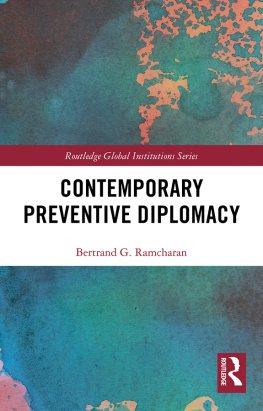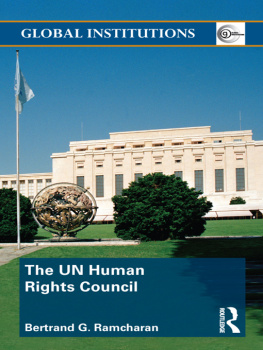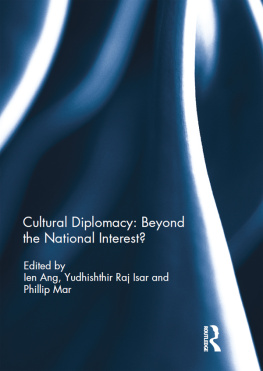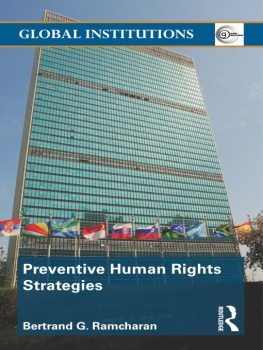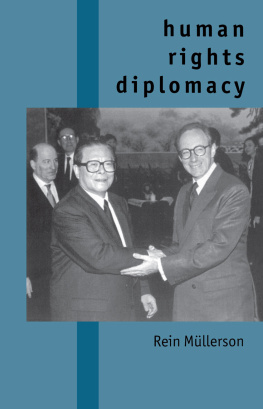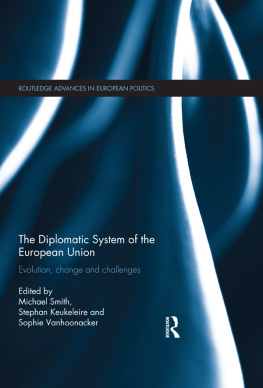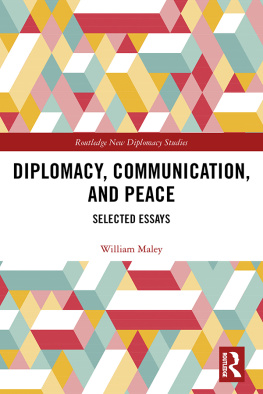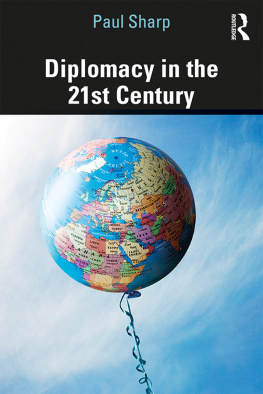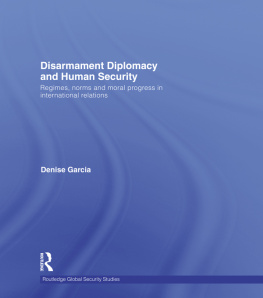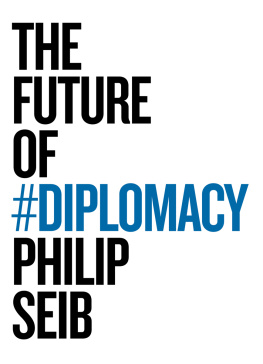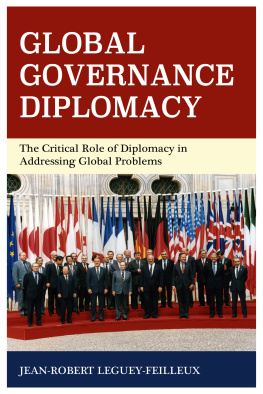Contemporary Preventive Diplomacy
This book offers an explanation and evaluation of preventive diplomacy in an age of increasing precariousness. It emphasizes the importance of pursuing diplomacy and human security in connection with the Sustainable Development Goals (SDG) which promote development grounded in peace, justice, and universal respect for human rights.
It explores and uncovers efforts to set up diplomatic channels designed to ensure relations between the great powers, intra- and inter-state conflict, terrorism and weapons of mass destruction, human rights, and the global watch over human security do not escalate out of control. Discussing evolving tensions between the United States and China, and the United States and Russia, this book recalls past examples of preventive diplomacy between them, and explores ideas for the exercise of preventive diplomacy in the future. Presenting evidence that contemporary preventive diplomacy is pursued not only by international or regional officials but also by nongovernmental organizations and individuals, the book emphasizes the need to pursue and enhance a comprehensive effort to realize SDG 16 and human security.
The book contains a range of practical recommendations to improve preventive diplomacy and provides a unique optic into understanding the threats facing the planet. It will be of interest to scholars and students of diplomacy, security studies, global governance, and practitioners in government and international organizations.
Bertrand G. Ramcharan of Guyana had a 33-year career at the UN, serving, among other roles, as director in the Department of Political Affairs (Africa I Division), and deputy, then acting High Commissioner for Human Rights. He wrote the first draft of Agenda for Peace, and drafted the recommendation to the secretary-general to establish the UN Preventive Deployment in FYR Macedonia. He has been chancellor of the University of Guyana, professor at the Geneva Graduate Institute of International and Development Studies, member of the Permanent Court of Arbitration, and commissioner of the International Commission of Jurists. He is the author of several books, including Preventive Diplomacy at the United Nations and International Peace Conferences.
Routledge Global Institutions Series
Edited by Thomas G. Weiss
The CUNY Graduate Center, New York, USA
and Rorden Wilkinson
University of Sussex, Brighton, UK
About the series
The Global Institutions Series provides cutting-edge books about many aspects of what we know as global governance. It emerges from our shared frustrations with the state of available knowledgeelectronic and print-wisefor research and teaching. The series is designed as a resource for those interested in exploring issues of international organization and global governance. And since the first volumes appeared in 2005, we have taken significant strides toward filling many conceptual gaps.
The series consists of two related streams distinguished by their blue and red covers. The blue volumes, comprising the majority of the books in the series, provide user-friendly and short (usually no more than 50,000 words) but authoritative guides to major global and regional organizations, as well as key issues in the global governance of security, the environment, human rights, poverty, and humanitarian action among others. The books with red covers are designed to present original research and serve as extended and more specialized treatments of issues pertinent for advancing understanding about global governance.
The books in each of the streams are written by experts in the field, ranging from the most senior and respected authors to first-rate scholars at the beginning of their careers. In combination, the components of the series serve as key resources for faculty, students, and practitioners alike. The works in the blue stream have value as core and complementary readings in courses on, among other things, international organization, global governance, international law, international relations, and international political economy; the red volumes allow further reflection and investigation in these and related areas.
The books in the series also provide a segue to the foundation volume that offers the most comprehensive textbook treatment available dealing with all the major issues, approaches, institutions, and actors in contemporary global governance. The second edition of our edited work International Organization and Global Governance (2018) contains essays by many of the authors in the series.
Understanding global governancepast, present, and futureis far from a finished journey. The books in this series nonetheless represent significant steps toward a better way of conceiving contemporary prob-lems and issues as well as, hopefully, doing something to improve world order. We value the feedback from our readers and their role in helping shape the on-going development of the series.
A complete list of titles can be viewed online here: www.routledge.com/Global-Institutions/book-series/GI.
Global Business Associations (2019)
Karsten Ronit
A League of Democracies (2019)
Cosmopolitanism, Consolidation Arguments, and Global Public Goods
John Davenport
Moral Obligations and Sovereignty in International Relations (2019)
A Genealogy of Humanitarianism
Andrea Paras
Protecting the Internally Displaced (2019)
Rhetoric and Reality
Phil Orchard
Accessing and Implementing Human Rights and Justice (2019)
Kurt Mills and Melissa Labonte
The IMF, the WTO and the Politics of Economic Surveillance (2019)
Martin Edwards
Multinational Rapid Response Mechanisms (2019)
John Karlsrud and Yf Rykers
Towards a Global Consensus Against Corruption (2019)
International Agreements as Products of Diffusion and Signals of Commitment
Mathis Lohaus
Negotiating Trade in Uncertain Worlds (2019)
Misperception and Contestation in EU-West Africa Relations
Clara Weinhardt
Negotiations in the World Trade Organization (2019)
Design and Performance
Michal Parizek
The International Organization for Migration (2020)
Challenges, Commitments, Complexities
Megan Bradley
Humanitarian Negotiations with Armed Groups (2020)
The Frontlines of Diplomacy
Jonathan Ashley Clements
Diaspora Organizations in International Affairs
Edited by Dennis Dijkzeul and Margit Fauser
Global Think Tanks
Policy Networks and Governance
2nd edition
James G. McGann with Laura C. Whelan
Regionalism under Stress
Europe and Latin America in Comparative Perspective
Edited by Detlef Nolte and Brigitte Weiffen
Contemporary Preventive Diplomacy
Bertrand G. Ramcharan

